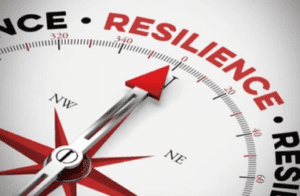Archive for Month: December 2023
Mastering the Transition A Guide for Executives Eyeing a Move into Private Equity (PE)
Written by: Gerald O’Dwyer The PE Guru

As an executive aiming to transition into a role in private equity (PE), (or get another one) there are several key areas you should prepare for to make yourself a competitive candidate:
Understanding of Private Equity: Familiarize yourself with the PE industry, including its structure, investment strategies, and the lifecycle of a PE investment. Understanding how PE firms operate, their value creation strategies and exit mechanisms is crucial.
Financial Acumen: Strong financial skills are essential in PE. You should be proficient in financial modeling, valuation techniques, and analyzing financial statements. Enhance your knowledge of leveraged buyouts, mergers and acquisitions, and capital markets.
Industry Expertise: PE firms often value deep expertise in specific industries. Demonstrate your knowledge and experience in a sector where you have a proven track record. This can make you valuable for sector-specific funds or for operational roles within portfolio companies.
Deal Experience: If you have experience in deal-making, mergers and acquisitions, or raising capital, highlight this experience. PE firms look for individuals who can identify and execute profitable deals.
Network Building: Establishing a robust network in the finance and investment community can be crucial. Attend industry events, join relevant professional groups, and connect with PE professionals to build and maintain relationships.
Leadership and Operational Skills: PE firms often look for executives who can take on leadership roles in their portfolio companies. Showcase your leadership, operational management, and turnaround skills. Demonstrating how you’ve successfully improved business performance can be a significant advantage.
Understanding of Due Diligence: Knowledge of the due diligence process, including legal, financial, and commercial aspects, is important. You should be able to assess risks and opportunities in potential investments.
Fundraising and Investor Relations: Experience in fundraising and managing investor relations can be beneficial, especially for senior roles in PE firms.
Adaptability and Resilience: The PE environment is fast-paced and often high-pressure. Show that you are adaptable, resilient, and able to thrive in such settings.
Education and Certification: Consider pursuing relevant educational qualifications or certifications if you don’t already have them. An MBA, CFA, or other finance-related qualifications can be beneficial.

Tailored Resume and Pitch: Tailor your resume and personal pitch to highlight experiences and skills that align with PE roles. Focus on quantifiable achievements and how your experience can translate into success in a PE context.
Preparation for Interviews: Be prepared for rigorous interviews. You’ll need to demonstrate your industry knowledge, critical thinking, and how your experience makes you a valuable asset to a PE firm.
Remember, transitioning to a PE role can be competitive and challenging, especially if you don’t have direct experience in the field. It’s important to leverage your existing skills and experiences, continually expand your knowledge, and network extensively within the industry.

